
We Should Cover Everyone Like We're Covering Ukrainians
People following the mainstream coverage of Ukraine are getting an excellent lesson in media double standards.
Running alongside the ongoing horror of the war in Ukraine has been a pernicious thread of racism and hypocrisy in some of the coverage of the conflict.
If you have been online over the past couple of days, there's a good chance you will have seen the examples piling up. There was CBS correspondent Charlie D'Agata marveling that this was all happening in a "relatively civilized" part of the world, in comparison to Iraq or Afghanistan:

There was a Telegraph op-ed from Conservative politician Daniel Hannan that made the point as explicitly as possible:

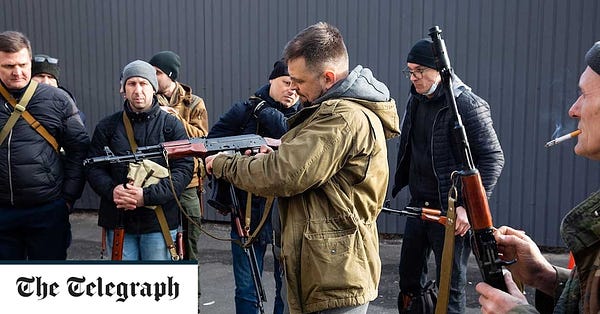
There was the Al Jazeera presenter musing about the "compelling" European character of the refugees:

(D'Agata and Al Jazeera have since apologized for the comments.)
There was ITV News:

And BFM TV in France:


Forget saying the quiet part loud—this was the quiet part being screamed.
It didn't seem to matter what country people were broadcasting from; the same thing kept happening. Things got bad enough that the Arab and Middle Eastern Journalists Association issued a statement denouncing the trend:

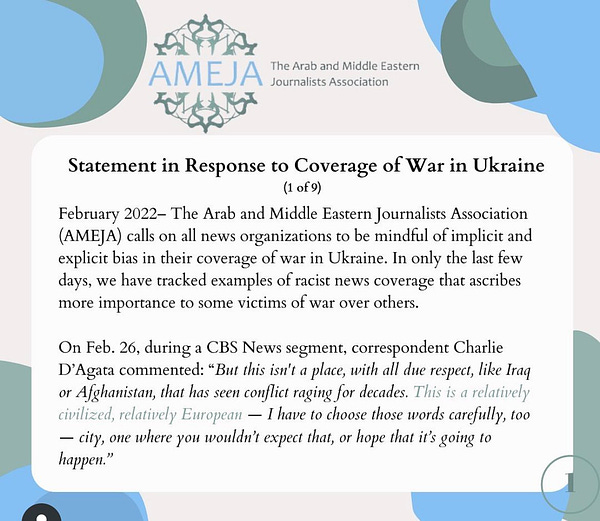
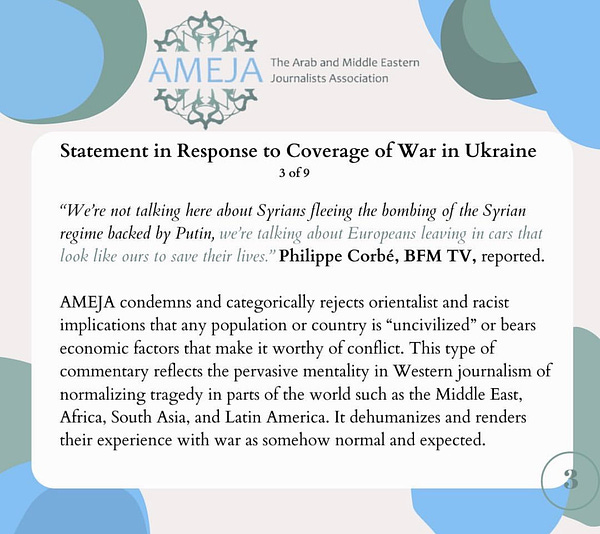
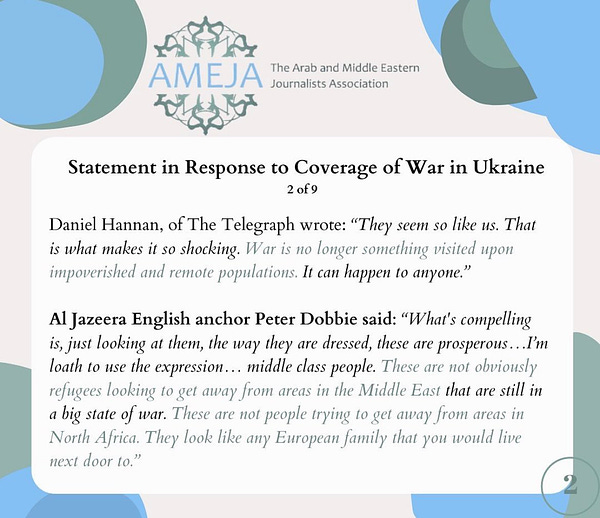
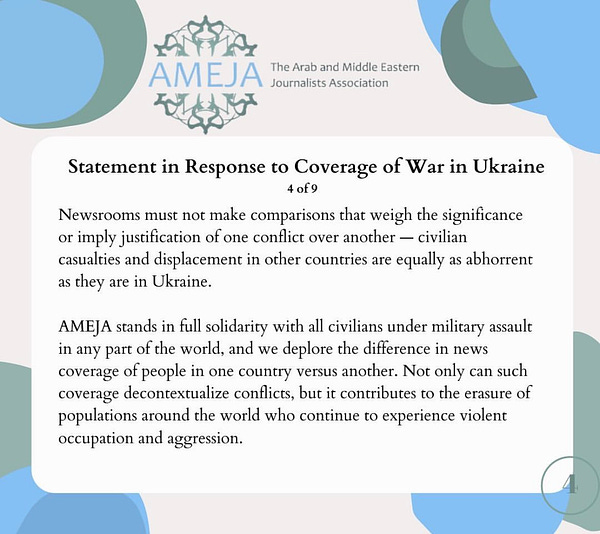
Running alongside this blatant racism—which a) conveniently elides the fact that the Middle East and Africa are conflict-riven in large part because of continual U.S. and European intervention, rather than because of the innate savagery of their people and b) implicitly erases the Africans and other people of color who are not finding the gates of Europe quite as wide open and c) is just kind of weird when you consider just how much bloodshed has existed in Europe throughout history—was an equally disorienting feature for anyone who has followed coverage of, say, the Israel-Palestine conflict, or any response to U.S. wars in the Middle East: unabashed cheerleading for armed resistance to invasion and occupation.
The Ukrainian civilians taking up arms to defend their country have become folk heroes overnight, with outlets running explainers on how non-Ukrainians can join them; news networks are even tracking the production of Molotov cocktails:

UK Foreign Secretary Liz Truss professed her support for British citizens going to Ukraine to fight Russia:

It should go without saying that ordinary Iraqis fighting the illegal occupation of their country from the United States, or ordinary Palestinians fighting the illegal occupation of their land by Israelis, are not treated with such magnanimity. There is no sense that any of these journalists are aware of the obvious parallels. On Sunday, Fox News anchor Harris Faulkner underscored this point in near-comical fashion in a conversation with Condoleezza Rice:

Well, Condi would certainly know!
The grimmest irony might have come when this clip of Palestinian child Ahed Tamimi standing up to an Israeli soldier was retconned into an image of a Ukrainian resisting Russian occupation:


Taken together, both of these strands—the repeated invocation of how "like us" Ukrainians are and the tunnel-vision celebration of armed struggle—serve as a potent window into the double standards that are applied to these conflicts. We can see, as clearly as ever, which people are deemed worthy of our sympathy and which are coded as Other; whose resistance is a thing of beauty and whose is a thing to be feared; when violence is noble and good and when it is wrong; when people are part of a "sovereign nation" and when their country is a mere plaything to be toyed with. The feeling of whiplash that comes from watching this play out in real time is hard to understate.
None of this is about diminishing the struggle of the Ukrainians, or about castigating people for caring about what happens to them. This is by far the biggest story happening in the world right now. The Russian invasion is an obvious moral outrage. It is right and proper to care and to be in solidarity. Ukrainians deserve every bit of the sensitive, moving coverage that reporters like our own Jack Crosbie are giving us.
But it is always worth examining why it is that some struggles are lionized—even understandably so—and others are demonized, or ignored altogether. It is worth thinking about who is allowed humanity, and whose humanity is erased. This is how we come to understand the narratives that shape so much of our thinking about the world—the way in which we are conditioned to feel a burst of human kinship with some people, and forget that other people even exist. It's also one way we can begin to set different expectations—to demand, for instance, that the standards we are applying right now are applied the next time Israel attacks Gaza, or the next time that the United States intervenes in a sovereign country. It's not that Ukrainians don't deserve to be covered like this. It's that everyone else deserves to be covered like Ukrainians.


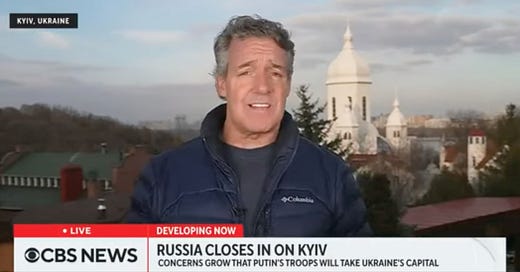







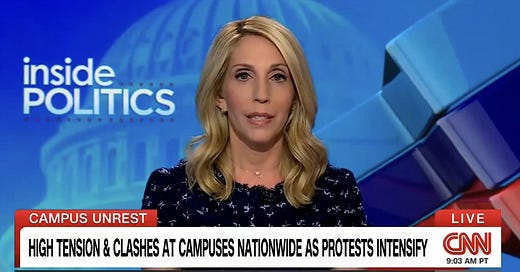

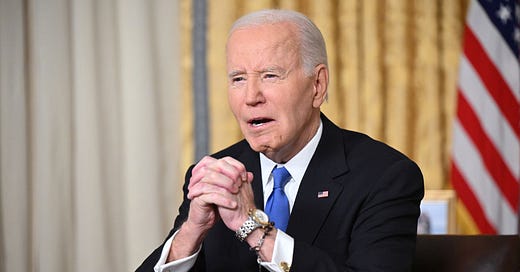


Thank you Jack for this clear exposure of the hypocrisy and double standards that are making me scream!